This premium content is exclusive to edie Members.
To find out more about edie Membership, please click below.
If you are an existing member, login here
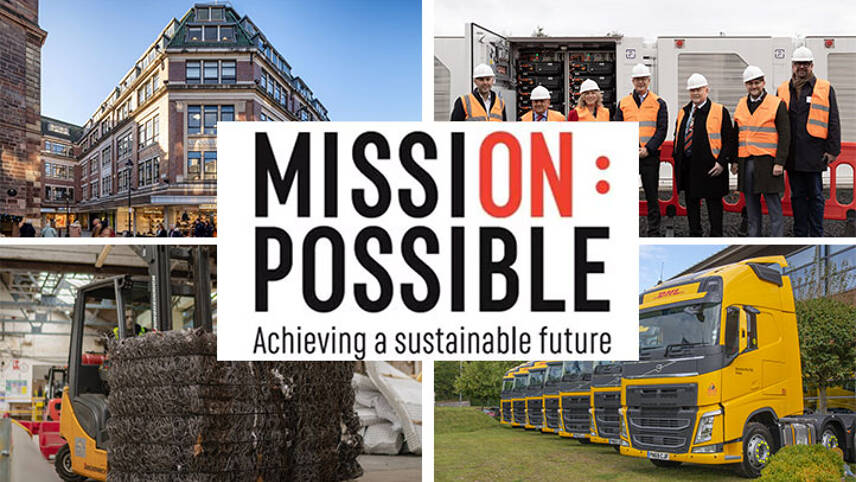
Published every week, this series charts how businesses and sustainability professionals are working to achieve their ‘Mission Possible’ across the campaign’s five key pillars – energy, resources, infrastructure, mobility and sustainability leadership.
Across the UK and across the world, leading businesses, cities, states and regions are turning environmental ambitions into action. Here, we round up five positive sustainability stories from this week.
ENERGY: New battery facility comes online in Scotland to tame wind curtailment
According to Carbon Tracker, £1.5bn was spent between January 2021 and April 2023 on curtailing wind projects in the UK. Under-investment in grids and energy storage were blamed for this issue.
This month, Zenobe celebrated the completion of a new battery energy storage site in North Lanarkshire which should prevent £41m of wind curtailment over a 15-year period.
The 50MW array is one of the largest in Scotland and is the first of its kind to connect to the gfrid. Zenobe is aiming to bring two more batteries online in Scotland by 2026 and also has proposals out for development of a third.
Zenobe co-founder James Basden said: “Battery storage is essential if the UK is to improve its energy security and bring down costs for consumers. By capturing and storing excess energy with sites like Wishaw, we can power homes, buses and trucks with energy that would otherwise have been wasted.”
RESOURCES: Ikea launches mattress removal and recycling scheme
Just 14% of the mattresses disposed of in the UK each year are estimated to be recycled. More than six million end up in landfills annually.
To help tackle this issue, Ikea has partnered with The Furniture Recycling Group to launch a new mattress removal and recycling scheme. Customers can book collections in-store or online at the cost of £40 per mattress.
The Furniture Recycling Group purports to divert all mattresses it collects from landfill. Its process involves separating them manually into component parts before sanitizing them and sending them for onward processing. In the near future, there are hopes for mattresses in good quality to be sanatised and reused rather than recycled.
“By stripping each mattress back and recycling its component parts, together we are able to contribute to the circular economy and ensure that a bulky waste stream is recycled and diverted from landfill, delivering long-term environmental benefits,” said The Furniture Recycling Group’s founder and chief executive Nick Oettinger.
MOBILITY: DHL to transition on-site fuelling stations from diesel to HVO
Hydrotreated vegetable oil (HVO) is produced using used cooking oils and waste from the food manufacturing process. It is proving to be a popular decarbonisation choice for businesses with hard-to-electrify diesel equipment, as it can be used as a drop-in solution.
This week, DHL Supply Chain confirmed that it is rolling out HVO across “the majority” of its on-site refuelling stations in the UK. It expects all installations to be completed at 20 locations by the end of 2023. Additional fuel bunkers will be added next year.
DHL is expecting a carbon reduction of at least 80% on a lifecycle basis compared with diesel. It is forecasting more than 15,000 tonnes of mitigated greenhouse gas emissions within a year.
DHL Supply Chain UK & Ireland’s chief executive Saul Resnick said: ““The installation of HVO fuel across our bunkered sites represents a critical moment in our multi-fuel decarbonisation strategy.”
As well as HVO, DHL Supply Chain is investing in electric vehicles and other alternative fuels. The business plans to invest €200m in decarbonising mobility over a three-year period.
THE BUILT ENVIRONMENT: Schroder Real Estate Investment Trust to embed sustainability in objectives
In this part of the roundup, we often focus on an innovative building that has secured certification through a scheme like BREEAM, LEED or Nabers.
This week, though, we have news regarding the financing of a more sustainable built environment. The Schroder Real Estate Investment Trust (REIT), which manages a £466m portfolio of properties across the UK, is planning to amend its investment policy in a bid to increase its focus on decarbonisation.
The firm is planning to create a decarbonisation and sustainability improvement strategy focused on retrofitting and adapting its existing estate of more than 40 buildings. A statement regarding the changes notes that this will make buildings more attractive to would-be tenants, thus making a more sustainable portfolio a better investment proposition.
The REIT is also planning to link executive compensation with the delivery of the forthcoming sustainability strategy.
A general meeting has been tabled for 15 December, where a decision on the proposed changes will be made.
SUSTAINABILITY LEADERSHIP: PepsiCo and ba&sh announce next steps to scale regenerative farming
The Sustainable Markets Initiative (SMI) estimated last year that just 15% of the world’s cropland is managed in a way that uses regenerative practices – those that improve outcomes for soil quality and nature, typically while also reducing water use and emissions.
The Initiative has stated that this proportion will need to reach 40% by 2030 to support the delivery of the Paris Agreement on climate.
One of the members of the Initiative’s Agribusiness Taskforce, PepsiCo, this week announced eight new innovation projects to be funded through its Positive Agriculture Outcomes accelerator. They included regenerative agriculture schemes in the UK, Poland, Romania, Australia and Colombia. Read edie’s full story here.
And, in related news, French fashion brand ba&sh has announced plans to fund regenerative wool farming in Uruguay, as it works towards a 30% regenerative wool mix by 2025.
It will provide funding through the Nativa Regenerative Agriculture Programme, and claims that its contribution will impact three farms spanning more than 8,000 hectares.
The programme assists farmers to introduce different grasses which can enrich soil quality; to reintroduce depleted native tree species and to assess whether re-meandering streams and rivers could boost the local ecosystem.
ba&sh chief executive Pierre-Arnaud Grenade said he hopes the initiative will “foster a more demanding and innovative relationship between the fashion industry and its agricultural partners.”
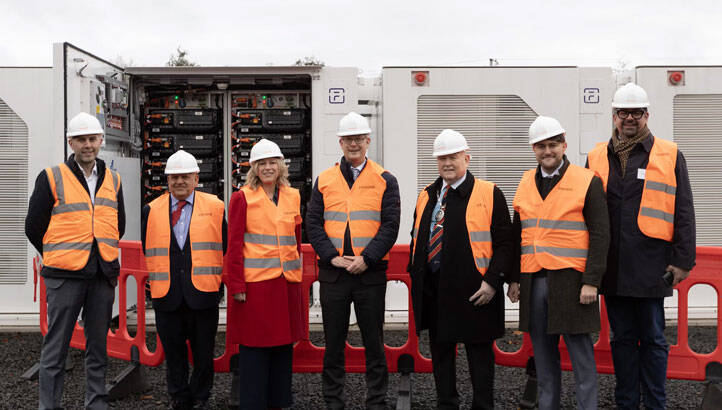
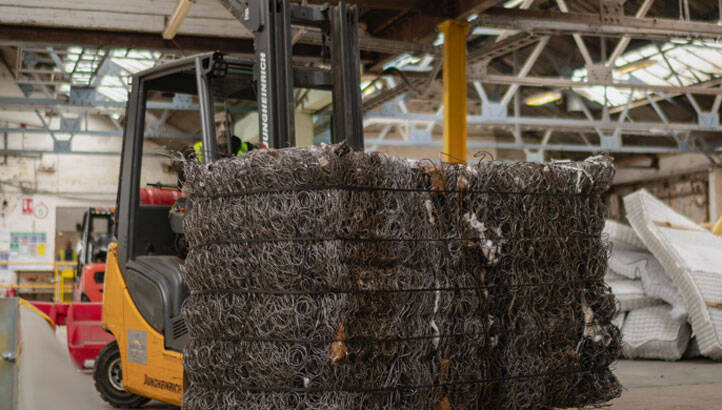
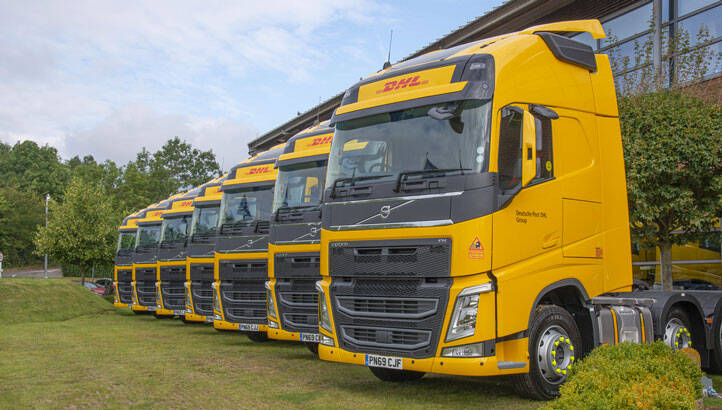
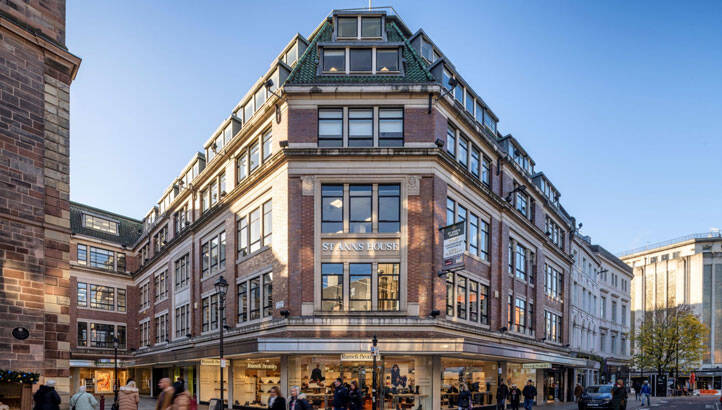
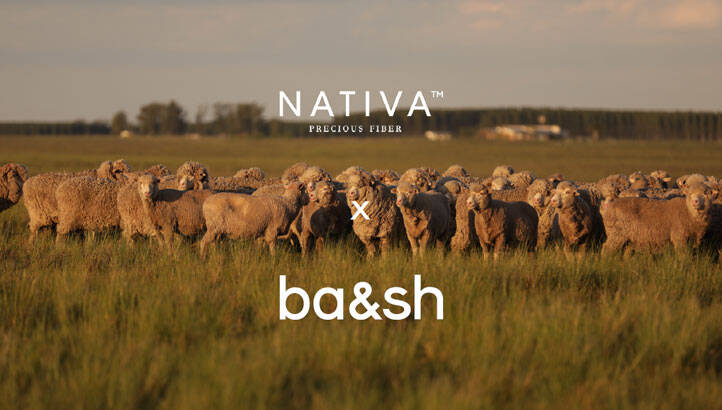


Please login or Register to leave a comment.